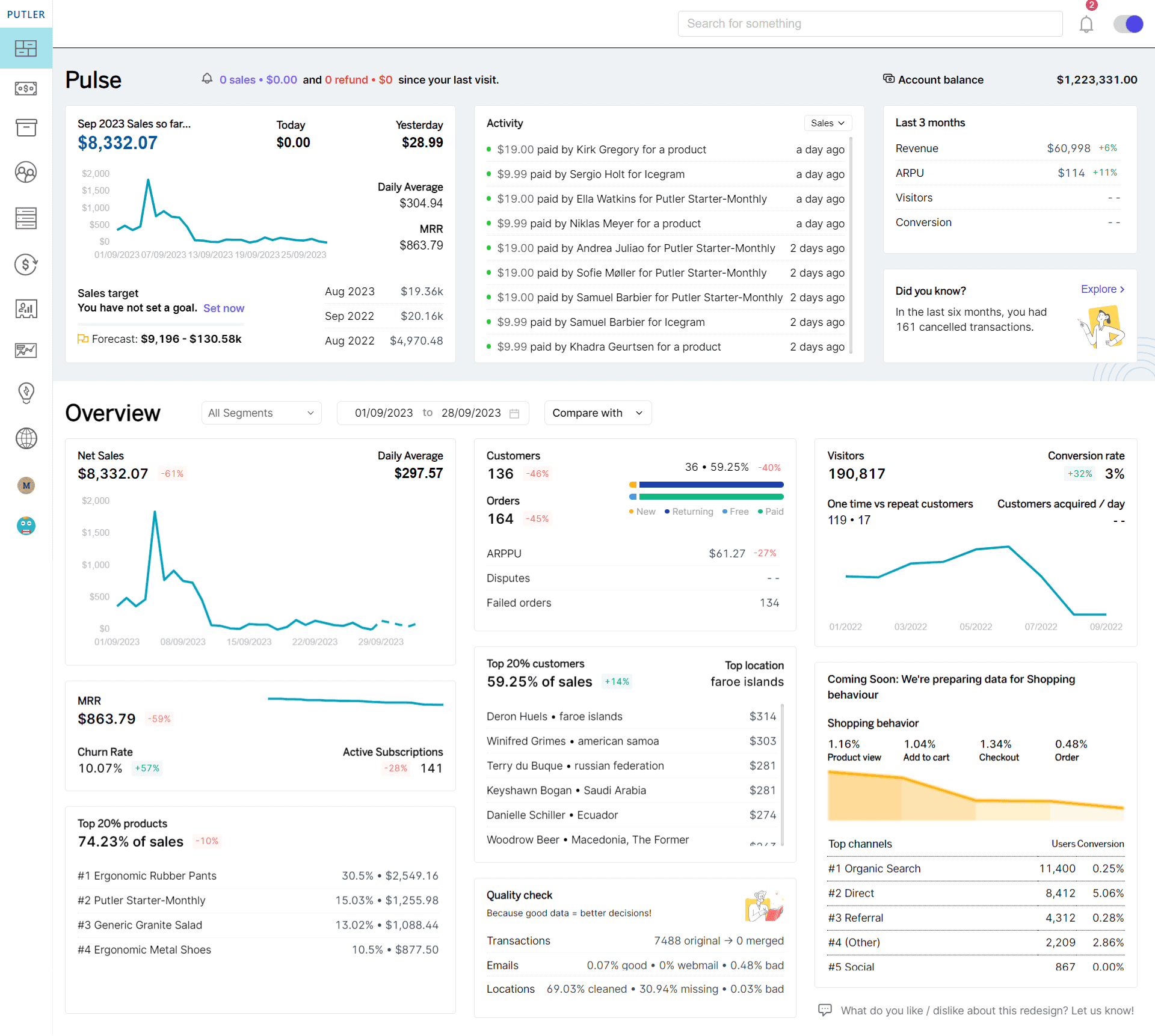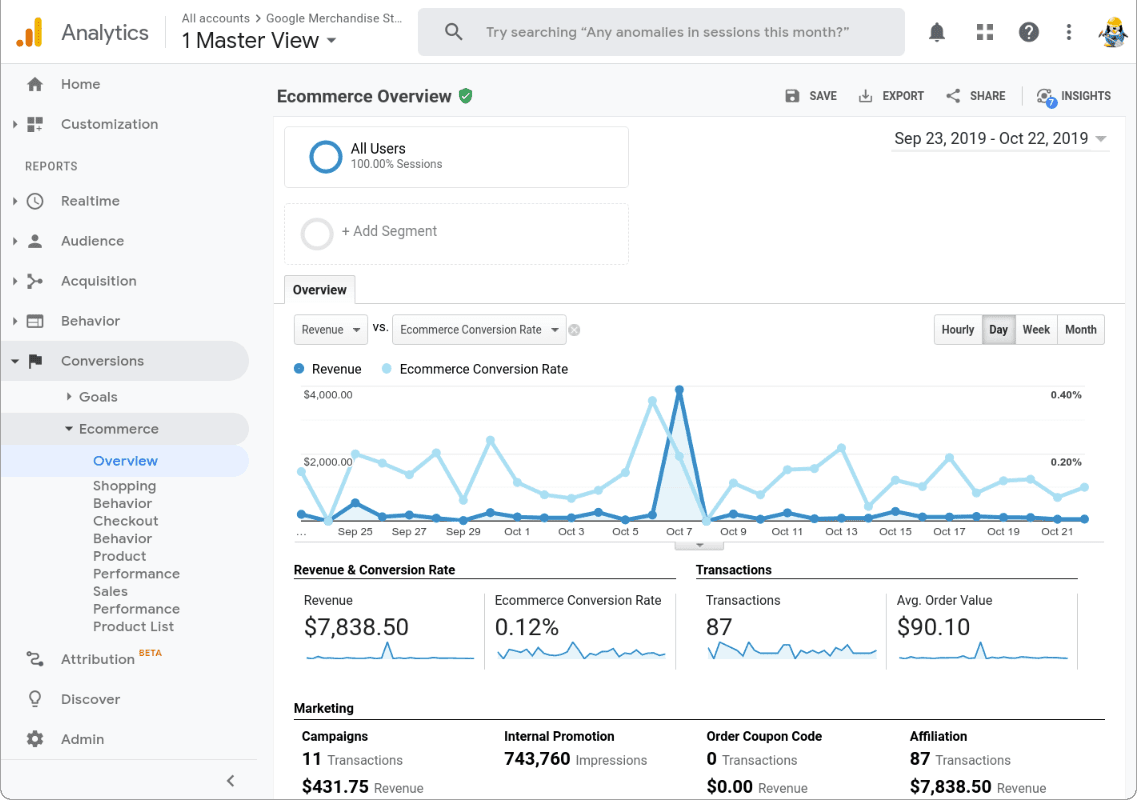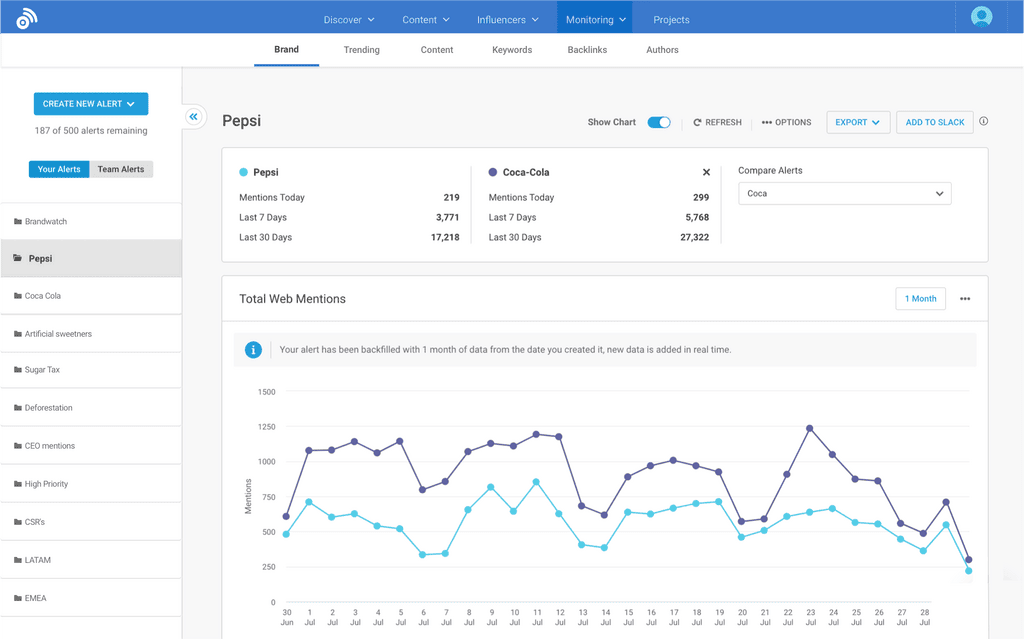Tired of rummaging through ideas to increase your ROI?
In an age when every decision is defined through data, data driven marketing can certainly be a way to reach your goals.
With endless media channels and platforms, the strategy helps with an array of benefits along with presenting an idea about the impact of the current marketing trends.
While marketing has undergone a substantial shift, crafting your vital strategies based on guesswork can cause counter-productive results.
And as per Think With Google, almost 7 out of 10 leading marketers, say that their companies use data to support decision-making at all levels.
Surely, this has compelled you to know more about data driven marketing!
Let’s dive into more details!
What is Data Driven Marketing?
Data driven marketing is the process of gathering and organizing data to make informed marketing decisions through data.
This further helps in personalizing and enhancing customer behavior by leveraging customer preferences.
What makes it even more promising is that it helps predict future behaviors, desires, and needs.
Crafting strategies based on data analysis such as customer behavior, demographics, and more, helps you reach the right people at the right time.
As per TD Insights, $6 Billion is spent every year on data driven solutions.
Real-world examples of data driven marketing
Some of the well-renowned brands across the globe have created campaigns that worked wonders for them.
Take a look at some of the data driven marketing examples below:
- Activia uses a self-esteem data
Source: Triggerbee In February 2017, the probiotic company Activia, started their campaign – It Starts Inside.
The campaign was centered on allowing women to reach their full potential, keep distracting thoughts at bay, and handle their self-esteem issues with confidence.
The data for the campaign was based on their study from the Global Web Index.
The study showed that 80% of women in the US, between the ages of 25 to 55, view themselves as their worst critic. As a credibility factor, it showed various interviews with women talking about their experience with self-doubt.
The campaign turned out to be a huge success for the company.
The company was able to appeal to the emotions of the customers which turned out to be successful as they could reach out to the target demographics.
- OKCupid uses dating data to create intriguing content
Source: OkCupid’s Medium OKCupid is one of the largest dating websites and hence gets a wealth of demographic data from its users.
And that’s why the company usually posts insightful user data on their blogs, to attract more attention from the users as well as the non-users.
They leverage their data to create content that resonates with their target audience.
The most common challenges in data driven marketing
Despite the advancements in the field, some common challenges while implementing a data driven marketing approach continue to linger.
Here are some of those:
- Data Compliance
Needless to say, it is crucial to collect, store, organize, and use data responsibly.
It is crucial to note that there are diverse data protection laws for specific countries that one must follow.
Hence, before using your customer’s data or creating a strategy based on the same, you must evaluate the regulations applied to your business beforehand.
- Data collection and analysis
The overwhelm that arises when compiling customer data is real!
The data volume and the channels to look for data are some real challenges.
Moreover, manually collecting and analyzing data can be an additional tedious process. This makes collecting and analyzing data a challenge, especially in the absence of a tool.
And, this often leads to marketers considering the possibility of opting for data-driven marketing.
- Lack of Data Literacy
Data literacy refers to effectively understanding and analyzing the data the absence of which can lead to poor decisions.
Some ways to overcome the lack of data literacy:
- Invest in data analysis training
- Troubleshooting any issues and evaluating the outcomes
- Leverage automation to reduce the risks of manual error
- Choose comprehensive and advanced tools that provide clear results
The above problems might feel like a roadblock that is impossible to overcome. However, despite the above problems, there is still a way out.
Putler can help you handle data collection, aggregation, and analysis and offers ready-to-use insights.
How does Putler change the data driven marketing game?

Everyone knows how powerful data driven marketing solutions can be. But not everyone is a data expert and as a result, they find it difficult to wrangle with data.
So the best way to try it out is to use the relevant tools.
Multiple tools help you with SEO, inbound marketing, and social media Marketing but there are very limited tools that help you make sense of your sales data and derive insights from that.
One such tool is Putler.
Here’s how Putler helps you get relevant insights from your sales data:
Real-time analytics
Putler helps you with much-needed analytics such as MRR (Monthly Recurring Revenue), net sales, annual customers (get specific with user churn and user growth), visitors, and conversions.
This helps you search, refund, and manage your orders, sales, and subscriptions in seconds.
Customer segmentation
With Putler, you can segment customers based on their engagement with your brand.
This includes loyal customers, new customers, ones that have slipped away, and many such segmentations.
Thanks to the RFM Analysis, Putler also offers segmentation based on transaction history, allowing you to identify the most valuable customers.
This further helps in tailoring your marketing strategy to specific customer groups and thereby improves the bottom line.
It offers filters such as location, products, product attributes, revenue contribution, customer type, total orders, and the duration of each customer.
For a clearer picture, the data is presented through bar graphs, percentages, and infographics.
Sales performance tracking
This tool also helps you track sales performance through filters such as location, status, amount range, and products.
Furthermore, it offers you a clearer picture of net sales, daily average, orders, and average revenue/sales. You can also set the sales meter as per your preferred monthly bracket.
Integration with multiple platforms
Putler allows you to join hands with multiple integrations to enhance your e-commerce offering.
Through 17 integrations related to payment gateways, analytics, email marketing, API, and e-commerce, Putler offers you a helping hand with multiple facets of your business, such as:
- Identifying the pricing that works for your customers.
- Identifying the days you make the most revenue and running a flash sale on the same day.
- Minimizing losses by planning a downtime when there are limited customers in your store.
- Identifying products that sell well together and create upsells/bundles to increase revenue.
- Finding the best and worst-selling products and creating marketing strategies around it. For example: Showing best sellers at the top.
- RFM segments – Send out targeted emails to maximize the results. For example, the sale period sends different emails.
- Reducing wastage by planning your inventory. It helps you take a look at which variation sells more and plan inventory based on data
- Identifying top spenders and building your customer relationship.
Benefits of implementing data driven marketing with Putler
Being a holistic tool that helps you achieve your data-driven marketing goals, Putler helps you handle multiple dimensions of an e-commerce business. Here are some benefits that Putler offers:
- Increased ROI
- Get the pulse of budget allocation to optimize spend.
- Marketers can evaluate how their customers move up and down the funnel after specifically allocating their capital and resources.
- Helps in gauging the revenue through net sales, MRR, ARPU, and more.
- Enhanced Customer Experience
- Offers enhanced customer segmentation and targeting
- Helps with a superior experience
- Allows delivering messages based on preferences, needs, and behaviors
- Helps you build a human connection
- Leads to higher revenue and enhanced customer loyalty.
- Improved Decision-Making
- Shows highly targeted customer data
- Helps make vital decisions for your marketing strategy
- Offers opinions and ideas based on the data
- Helps with comprehensive marketing reports, communications, and reaching conclusions.
- Competitive advantage
- Helps brands with better resource allocation after gauging the competitor’s performance
- Assists with creating marketing strategies and offers a competitive advantage
- Shows a clearer picture of the best channels, mediums, and platforms to use for your audience.
- Helps with a prompt and effective outreach to your audience.
How to create a marketing strategy based on the data?
Similar to any other arena, data in the marketing field is invaluable and can suggest the right direction for your strategies.
Here are some of the vital steps in a marketing strategy based on your data:
Goals
Set goals based on what you want to achieve and define them clearly.
Determining these goals helps you track the data that you wish to acquire. In the next step, outline the KPIs to measure the campaign’s success.
Defining your goals can help you address gaps in your strategy and fill them up as you go ahead.
Collecting Data
In the next step, gather data relevant from credible resources. To ensure being on the same page, avoid data silos or any other discrepancies.
As per Google, 86% of senior executives agree that eliminating organizational silos is vital for the expansion of the use of data and analytics in decision-making.
Analyzing Data
Gauge customer insights and vital patterns from your data which helps you reach conclusions and make data driven decisions.
Such in-depth analysis helps you gain a deeper understanding of their customers, leaving no space for trial and error.
Craft a strategy
Craft a relevant marketing strategy based on the collected and analyzed data to deliver your offerings in alignment with the customers’ needs and to effectively solve their problems.
An excellent strategy is what helps brands reach out to the target audiences at the right time with the right offering.
Launch Campaigns
Implement your data-driven marketing strategy and integrate them into your campaigns.
And since only launching campaigns is not the job entirely done, what follows is tracking the performance and optimizing it further.
Measure Performance and Optimize
Track your marketing performance and zoom into the areas that require improvement.
Adjust what works for your campaign and strategy which will help in personalizing the customer experience, targeting well-defined market segments, and improving their strategy.
Improving the problem areas, measuring the performance, and optimizing the marketing strategy, can take you a step closer to your desired results.
Best data driven marketing tools to increase your ROI
Improving the bottom line remains one of the key goals that a marketer wishes to achieve through marketing tools. Needless to say, besides being promising, the tool must tick all the boxes to increase the ROI.
Here are some of the best data-driven marketing tools that can help you achieve your ROI goals:
Google Analytics

Google Analytics is a well-known tool that tracks website behavior and provides actionable insights about website traffic, engagement, and other activities.
Diving deeper, Google Analytics also helps with the metrics for specific web pages. This helps you tweak low-performing pages and promote high-performing web pages, thereby helping to increase sales and conversions.
Semrush

Semrush is an SEO-based tool that helps your audience find your product, or service through your website with the help of targeted keywords.
It also offers other related SEO tools that assist you in your marketing strategy and rise above your competitors.
Buzzsumo

Buzzsumo helps you assess the content that your audience is interested in such as trending content, analyzing data, and tracking patterns.
With real-time data from Buzzsumo, marketers can improve their marketing strategy.
Additionally, Buzzsumo helps you with content research and discovery, influencer marketing research and media monitoring.
Hubspot

Hubspot helps you optimize your brand through multiple platforms and channels.
Its offerings include social media management, landing page optimization, and website analytics, to name a few. These parameters help in enhanced engagement with data driven marketing, sales, and ROI.
Additionally, Hubspot helps with marketing, sales, services, operations, and content management systems.
Conclusion
Data driven marketing strategies can help you tap into the socio-economic, demographics, behavior, preferences, and buying patterns of your customers.
This helps supercharge your marketing endeavors.
What makes it highly impactful is that it helps you see exactly where your business stands even in a saturated market.
Besides unlocking the true potential of your data to make data-driven marketing decisions, it can also increase ROI and pave the way for superior customer experiences.
While running an e-commerce business is no child’s play, success can still be within your reach.
You surely are looking for an end-to-end solution for your e-commerce website.
And, that’s why trying Putler can help you juggle everything successfully without overwhelm.
Time to monitor, manage, analyze, and grow your business to new heights!


